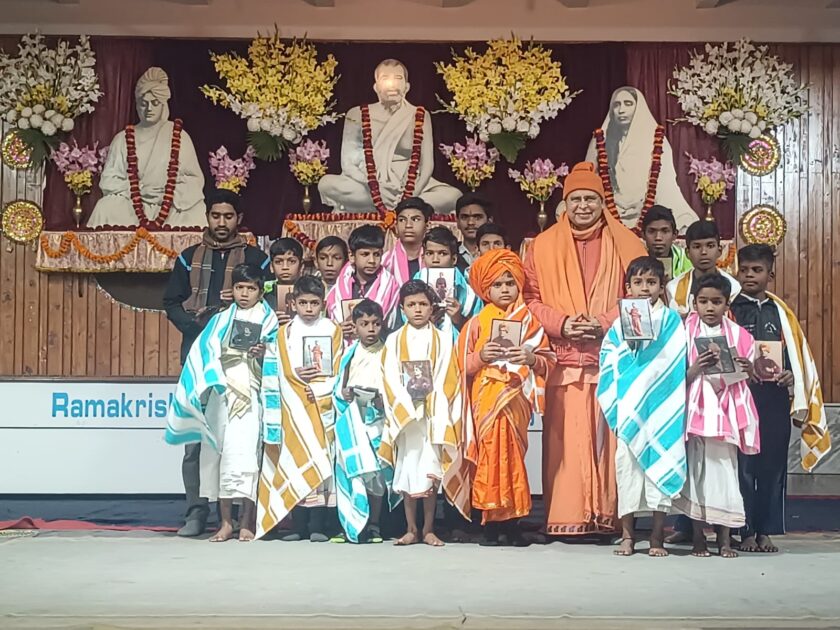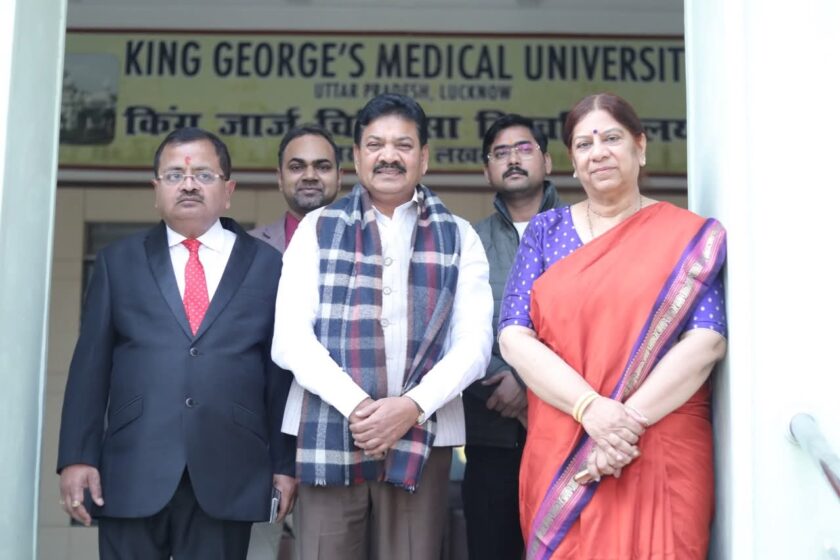Lucknow – In a powerful celebration of its 40-year journey, the Institute for Career Studies (ICS), founded in 1985 by eminent educationist and career guidance pioneer Dr. Amrita Dass, successfully hosted its inaugural Multi-Stakeholder Conclave on the theme “The Future of Education, Work & Real Intelligence.”
The day-long summit, held at a packed venue in Lucknow, brought together over 300 thought leaders, policymakers, academicians, industry captains, and technology innovators. Their central focus: How do we prepare future generations for an AI-accelerated world without losing the core of human intelligence, creativity, and empathy?
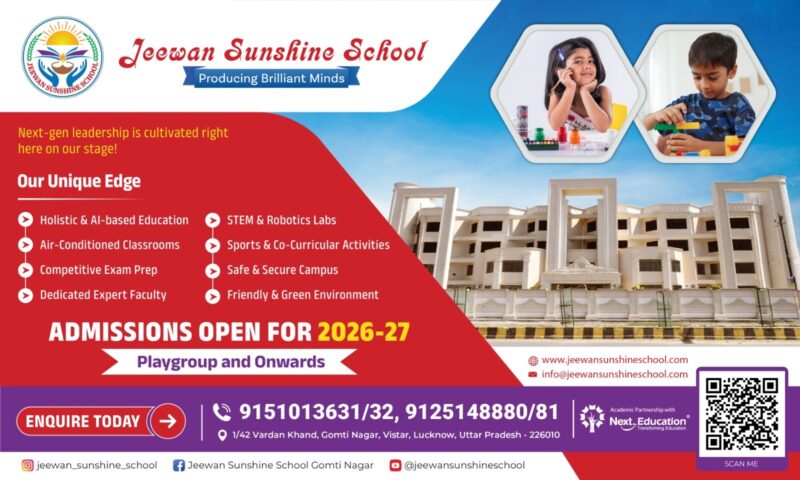
Since its inception, ICS has guided more than 500,000 students and working professionals through personalised, high-impact career interventions. Its global network now spans over 1,000 schools and colleges, while its bilingual ICS Career GPS App—widely regarded as one of India’s most comprehensive career guidance platforms—has already touched the lives of more than 700,000 users. The conclave, therefore, was not only a milestone celebration but also a forward-looking platform shaping national and global discourse on future-ready education and work.
Inaugural Address: 40th Anniversary Reflections by Dr. Amrita Dass
Dr. Dass set an inspirational tone with her keynote, “40th Anniversary Reflections.” She introduced the ICS philosophy of “Hi Tech and Hi Touch”—a fusion of cutting-edge technology with deeply human, empathetic guidance that begins as early as Class 10 and continues “Beyond.”
She emphasised that while AI will automate tasks, only “Real Intelligence”—the uniquely human blend of critical thinking, emotional wisdom, ethical judgment, and creative intuition—will define leadership and meaning in the decades ahead.
Panel Discussion I: Envisioning the AI Tipping Point in the Future of Work
Moderated by distinguished cardiologist and academic leader Dr. Rishi Sethi (Professor & Head, Cardiology, and Executive Director, SIHAT, KGMU), this session explored evidence-based projections on job displacement, job creation, and emerging career ecosystems.
Key insights included:
• Ram Kevalur highlighted how AI-first rural enterprises are generating millions of micro-entrepreneurial opportunities in Tier-3 and rural India.
• Kavita Bhanwadia shared Broadridge Financial Services’ global success in reskilling 50,000+ employees for AI-augmented roles.
• Naveen Athresh showcased Liquidmind AI’s predictive platforms helping MSMEs anticipate market shifts 12–18 months in advance.
• Varun Chatterji warned of an emerging “cognitive divide,” while presenting neuroscience-backed tools from Seventh Sense that enhance human–AI collaboration rather than replace it.
The panel unanimously concluded that India could create 90–100 million net new jobs by 2035 if policy and education systems pivot strongly toward AI literacy, systems thinking, and lifelong learning.
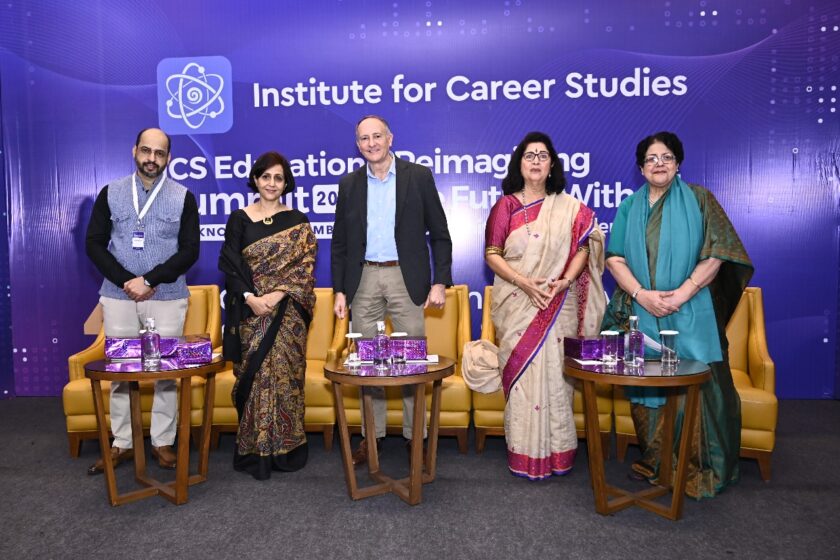
Panel Discussion II: Real Intelligence Matters – Future-Proofing Humanity Beyond Algorithms
Led by globally recognised education reformer Dr. Urvashi Sahni, this session turned attention to the non-automatable core of humanity.
Highlights:
• Dr. Jonathan Long (Aga Khan Academy, Hyderabad) emphasised that IB and pluralistic education models cultivate empathy, ethical reasoning, and global citizenship—competencies no algorithm can replicate.
• Meenakshi Sahni, drawing from her Modern School tenure and IIT Delhi research, advocated a national curriculum that foregrounds arts, philosophy, and social–emotional learning alongside STEM.
• Prof. Aditya Trivedi (Rashtram School of Public Leadership) argued that India’s civilisational ethos of dharma and self-knowledge gives it a unique advantage in developing leaders who can govern AI, not be governed by it.

The session received a standing ovation when Dr. Sahni declared: “The algorithm can predict; only the human heart can care.”
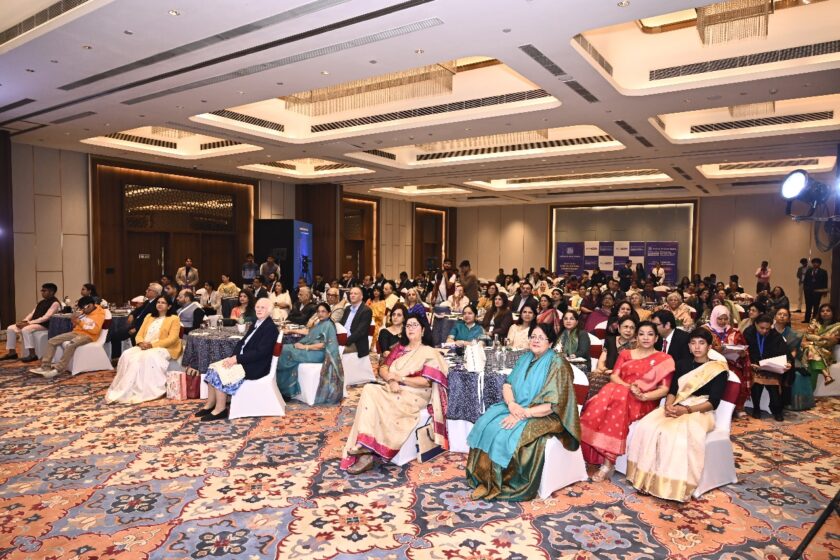
Panel Discussion III: Bridging Learning and Work for an AI-Driven Future
Co-moderated by Canada-based strategic communications expert Seema Jham, the final panel brought government, industry, and grassroots practitioners together to chart actionable roadmaps.
Key takeaways and commitments:
• Rashmi Arun, IAS, announced that Uttar Pradesh is piloting an AI-readiness index for all senior-secondary schools, with ICS as knowledge partner.
• Dr. Kaustubh Sonalkar, advisor to NITI Aayog and Skill India, revealed plans for a national “Real Intelligence Quotient” certification alongside technical skilling.
• Byomkesh Mishra (Medha) shared successes in placing 75,000+ rural youth in dignity-of-work roles through a blend of soft skills and emerging-tech training.
• Nitika Dua Chopra detailed Shiv Nadar School’s whole-school career guidance model, which has achieved 100% university placements for six consecutive years while prioritising student well-being.
The session concluded with the signing of the “Lucknow Declaration”, pledging cross-sector collaboration to make career guidance a fundamental right and embed Real Intelligence competencies across all education and skilling pathways by 2030.
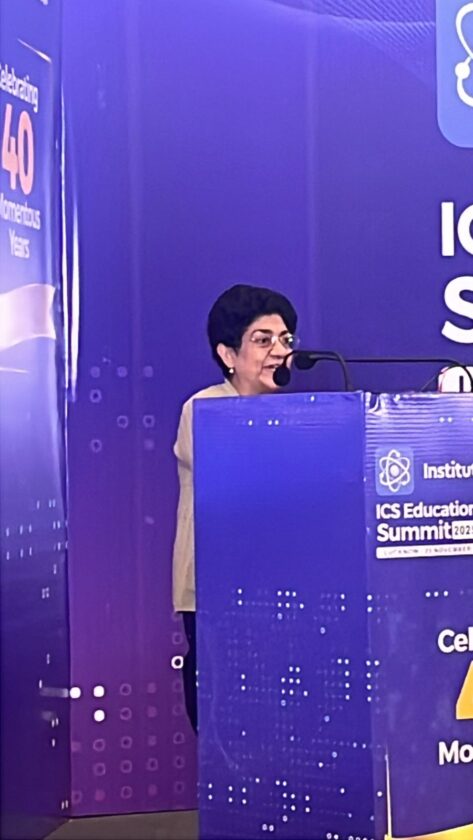
Valedictory Note
Kavita Dass, Director of Career Counselling Programmes at ICS, delivered the vote of thanks, describing the conclave as “a spark that will ignite a nationwide movement for human-centred progress in the age of AI.” She announced that the conclave’s proceedings and policy recommendations will be compiled into a white paper for presentation to the Ministry of Education and NITI Aayog.
As India races toward a $5-trillion economy powered increasingly by artificial intelligence, the ICS Conclave served as a reminder that true progress will be measured not just in rising GDP, but in how wisely we nurture the irreplaceable intelligence within every human mind and heart.
About the Institute for Career Studies (ICS)
For forty years, ICS has remained India’s gold standard in scientific, research-backed career guidance. From one-on-one psychometric counselling and counsellor certification programmes to large-scale institutional transformation initiatives, ICS continues to democratise access to world-class guidance—ensuring no talent is left behind, regardless of geography, gender, or socio-economic background.








